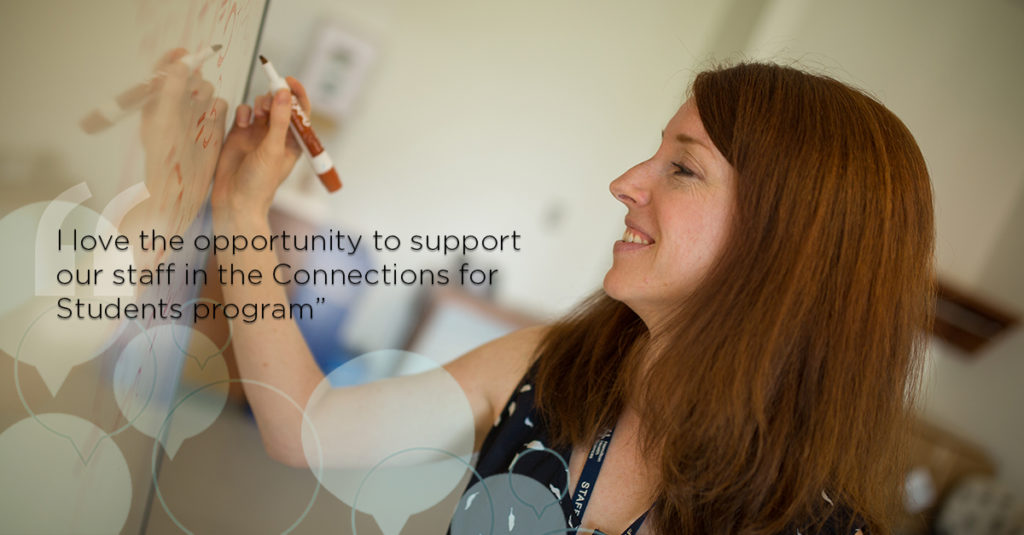
Introducing…our School Support Program
Elizabeth McAllister is the clinical coordinator of the School Support Program of the Hamilton-Niagara Regional Autism Program. She is based at Ron Joyce Children’s Health Centre.
Describe a typical day in your role?
The Autism program is undergoing a lot of changes right now as we redevelop within the Ontario Autism Program guidelines. Right now, my daily tasks are a combination of planning for our new program, and continuing to clinically supervise clients as they transition to school from our Intensive Behabioural Intervention (IBI) program, under the Connections for Students program.
What do you love most about your job/role?
The transition from receiving IBI to attending full-time school can come with challenges, so I love the opportunity to support our staff in the Connections for Students program as they work with each child’s educators and family to make that transition period as successful as possible. It’s so exciting to be able to consider the Applied Behaviour Analysis (ABA) strategies that have been valuable for a child and evaluate how to use them effectively in a classroom environment.
What do you find challenging?
Since we are a regional program, we work with children and families, as well as our partner agencies, schools and school boards across the Hamilton, Niagara, Brant and Haldimand-Norfolk regions. It’s really important to have a solid understanding of each agency and region’s unique characteristics, as well as the services and supports in those areas – this can be a lot of information to remember, so that can be both very interesting and challenging!
Tell us about your most gratifying experience at Hamilton Health Sciences
It’s hard to name just one! I would say that it is extremely rewarding to hear from one of the consultants that a behavioural program in a classroom is going well. It is particularly exciting when we hear that a teacher or EA is finding the ABA strategies provided to be valuable for both the child with ASD as well as the class as a whole.
What’s one thing people would be surprised to learn about your role?
They might be surprised to realize how much “coordination” is required in this clinical role. With our program staff working in multiple regions and as we develop a new autism program, a lot of time needs to be spent on managing caseloads, preparing clinical documentation, as well as coordinating clinical training.
